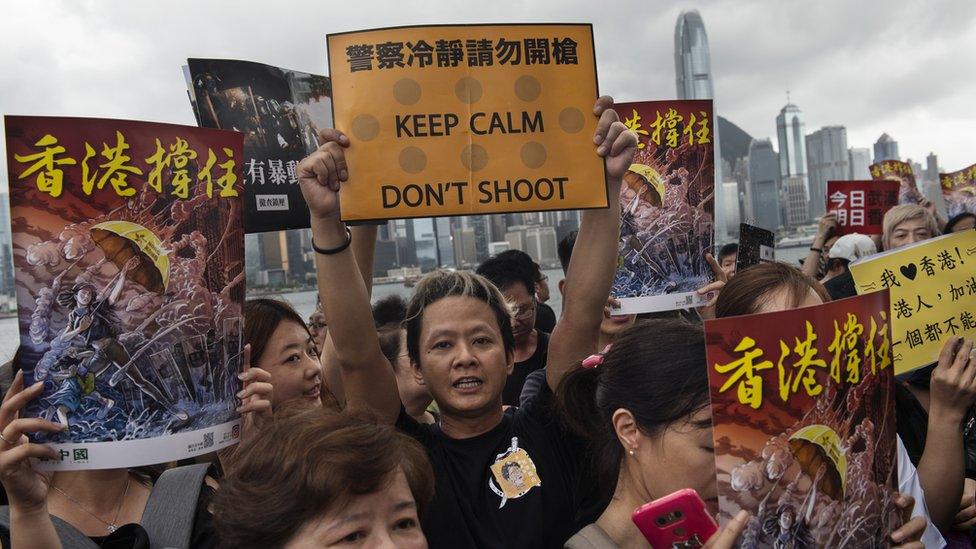Hong Kong protests: How Zara became the new target of Chinese anger
- Published
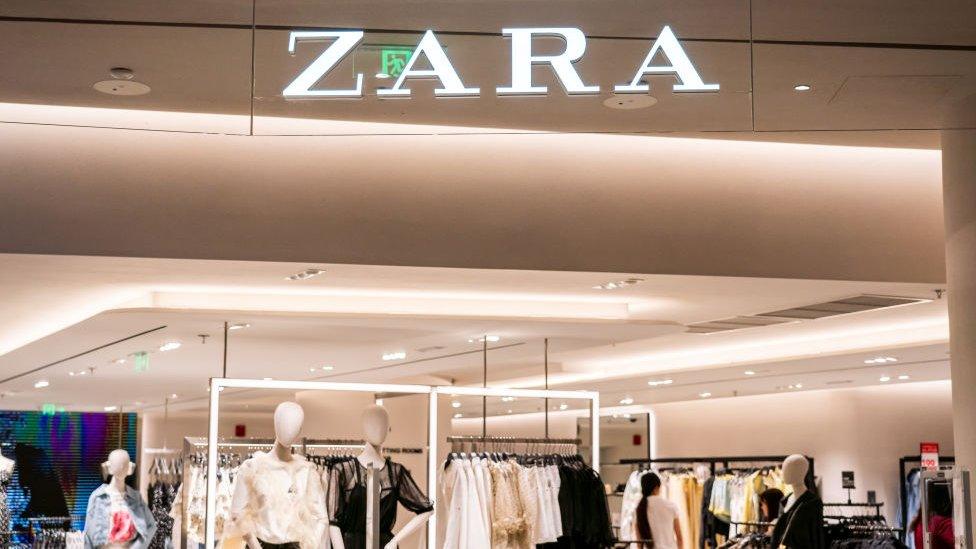
Zara is the latest retailer to fall foul of Chinese consumers
Spanish retailer Zara has found itself embroiled in controversy in China after some of its stores were closed on a day Hong Kong was expected to see widespread strike action.
Thousands of Chinese social media are calling for a boycott, accusing the retailer of supporting employees wanting to join the strike.
The chain has said it was just ensuring its shops weren't understaffed if transport was disrupted.
But that has done little to stem anger.
Hong Kong has seen months of protest, with much of the anger directed at what protesters say is a growing influence of mainland China in Hong Kong.
Many companies have found themselves facing an angry reaction from mainland China over anything perceived as supporting the protests or challenging Chinese sovereignty.
So how did the closure of some stores lead to Zara being the latest target?
'If you're not sincere, don't say anything'
The uproar started after four Zara stores in Hong Kong closed temporarily on Monday.
Students have boycotted classes as protests continue into their 14th week
That was a day when about 10,000 pupils from 200 secondary schools - according to organisers - boycotted the first day of the new term, to support the protests.
Hong Kong had on the same day braced itself for a two-day strike, though this eventually didn't gain much traction.
Hong Kong-based newspaper Ming Pao ran an article showing a picture of a sign it said was posted at one Zara store saying it was closed, and speculating on whether this was in support of the strike and boycott.
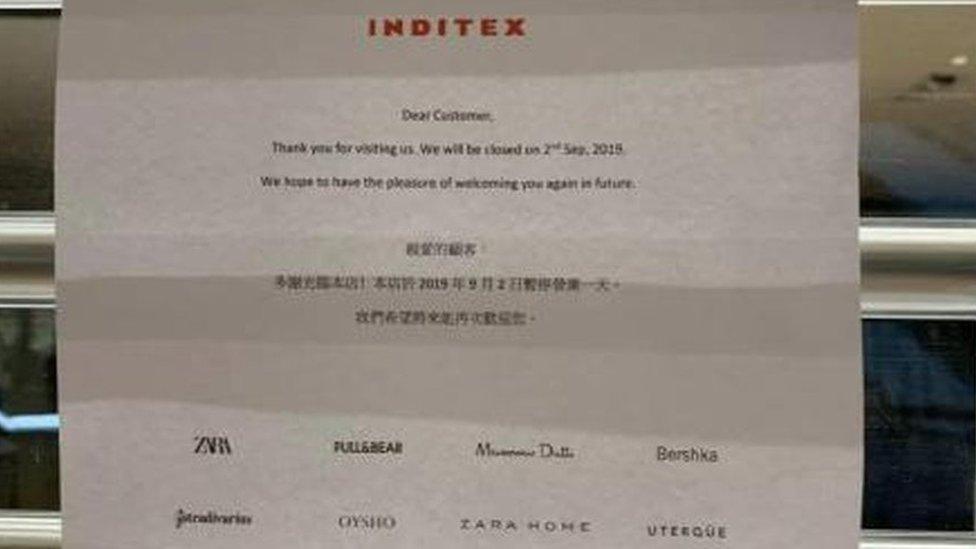
A photo of this sign, allegedly put up at a Hong Kong Zara store, has been widely shared on Weibo
It wasn't long before this were picked up on Weibo, where it was assumed Zara was pro-protest, and many called for a boycott.
Zara - which is owned by parent company Inditex - quickly posted a brief statement on its official Weibo page clarifying that it had "never been involved in any strike".
It said it supported the "One country, two systems" model, under which Hong Kong is part of China. However this has done little to quell online anger.
But the hashtag #ZaraStatement went viral on Weibo - racking up more than 330 million views - with many calling the statement insincere.
"This is really perfunctory. If you really want to sincerely talk about it, say it in a [proper] way. If you're not sincere, don't say anything," said one typical comment on Weibo.
It is not unusual for Western brands to find themselves in the middle of a consumer backlash in China - though they usually dig their way out by issuing long apologetic statements.
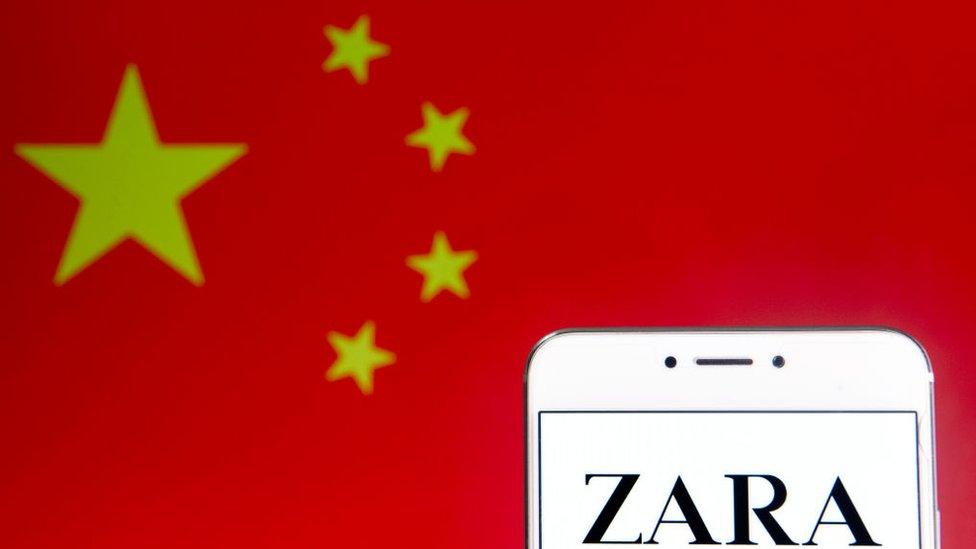
Zara has 14 stores in the city of Hong Kong
The pro-China internet commenters felt what was missing from Zara's statement was an overt apology.
"Show some sincerity Zara. I hope you will apologise and give a [proper] answer. If not, get out," one Weibo user said.
"You have the freedom to make whatever statement you want Zara. I also have the right not to buy your brand," another commenter said.
It said Zara was setting a "very negative example".
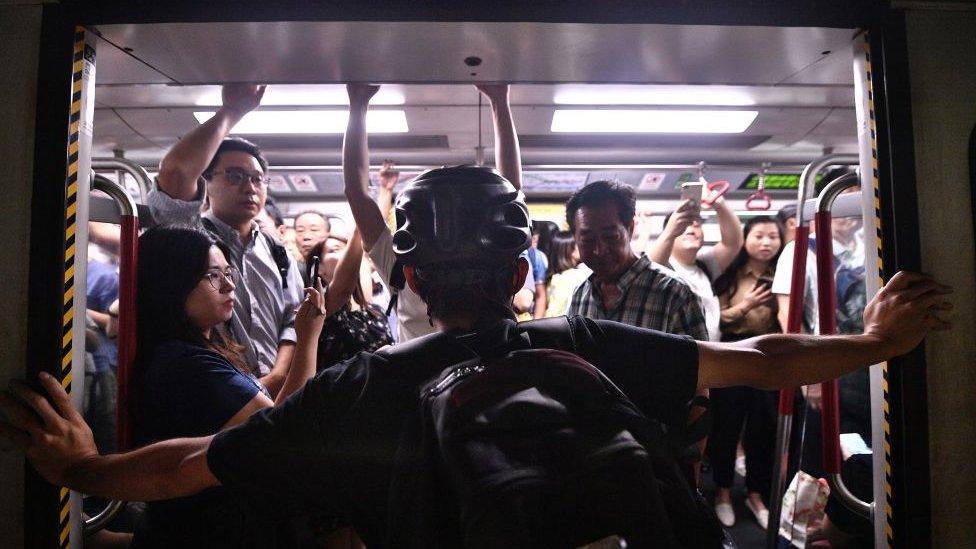
It is not uncommon for protesters to disrupt train services as a form of protest
Zara later clarified that it had "delayed" opening some stores on Monday because workers had trouble getting to work due to transport problems linked to the protests.
Activists had on Monday disrupted train services at different stations, causing major rush hour traffic delays.
"Let us clarify that all our 14 stores in Hong Kong SAR opened and every customer was welcome that day," said Inditex in a statement to the BBC.
"Due to transportation difficulties, we delayed the opening of four of our stores for several hours until our employees have been able to arrive to their jobs."
The Global Times however, said in a separate article that its reporters had found that train services "were not significantly delayed", implying that Zara had not been completely honest.
The Spanish retailer said it "deeply regretted any misunderstanding" the move had caused.
This is not the first time Zara has come under fire in Hong Kong.
Last year, it was criticised on Chinese social media for listing Taiwan - which China sees as part of its territory - as a separate country.
Hong Kong is now entering its 14th successive week of demonstrations.
The protests were sparked by changes to a law that would allow extradition to mainland China, but have since widened to include calls for an independent inquiry into police brutality and universal suffrage.

A guide to the Hong Kong protests
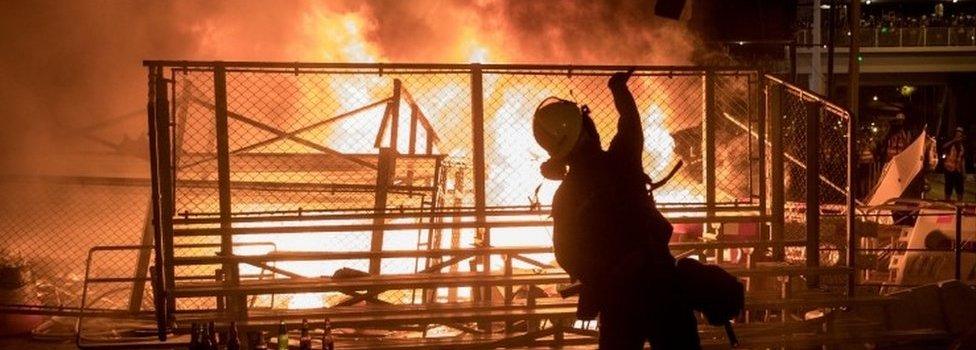
Summary of the protests in 100 and 500 words
All the context you need on the protests
Timeline of events so far
The background to the protests in video
More on Hong Kong's history
Profile of Hong Kong leader Carrie Lam
- Published15 August 2019
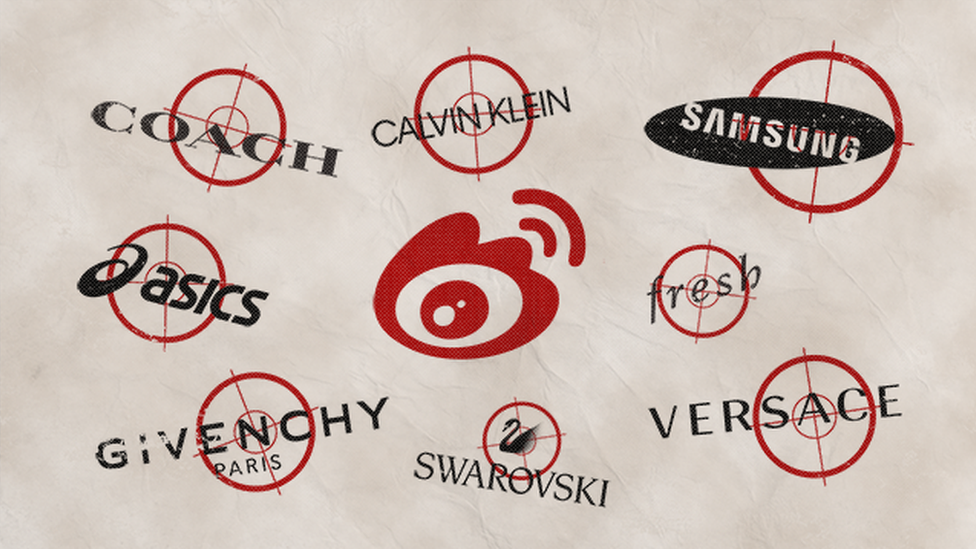
- Published2 September 2019
- Published28 August 2019
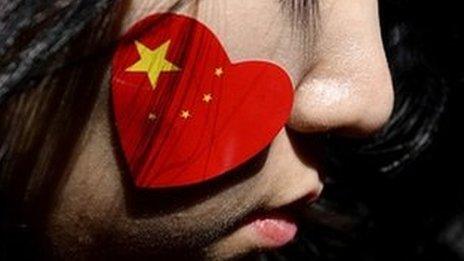
- Published13 December 2019
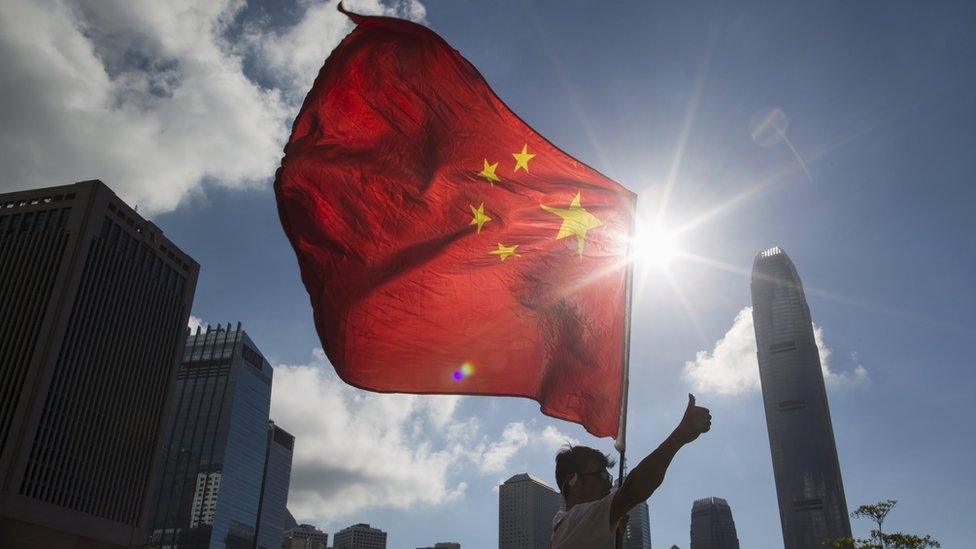
- Published28 November 2019
